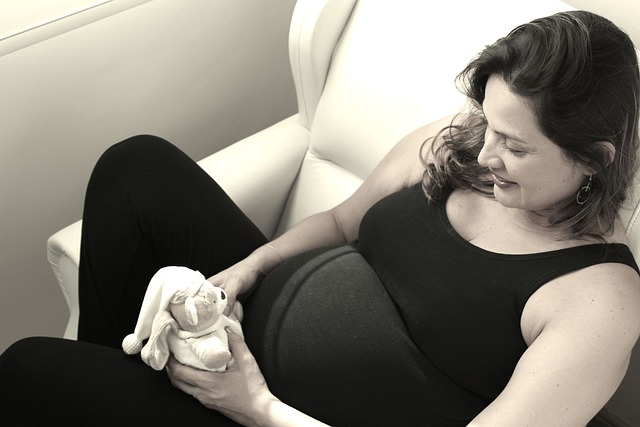I logged into our live chat service one morning and immediately connected with a user named Sarah. “I’m 18 weeks pregnant, and there was a reported case of measles at my child’s preschool. Should I be worried?”
It’s totally understandable for Sarah to be concerned. Measles is a highly contagious respiratory disease caused by a virus. According to the CDC, the measles virus can survive for up to two hours in the airspace where an infected person coughed or sneezed. If someone breathes in that contaminated air or touches a surface that has the virus and then touches their eyes, nose, or mouth, they can become infected. Measles is so contagious that about 90% of non-immune people nearby will catch it if someone is infected.
Symptoms of measles typically appear 7 to 14 days after exposure and can include high fever, dry cough, runny nose, red and watery eyes, and a rash all over the body. So far, studies haven’t shown an increased risk of birth defects if pregnant women contract measles during pregnancy. However, some research suggests that a measles infection might be linked to a higher risk of miscarriage, premature birth (having the baby before 37 weeks), and stillbirth.
The first question I asked Sarah was whether she had received the measles, mumps, and rubella (MMR) vaccine. Just one dose is about 93% effective in preventing measles, while two doses bring that number up to around 97%, making it the best way to avoid this illness. These vaccines are routinely given during childhood, so Sarah couldn’t remember if she had both doses. But after texting her mom, she confirmed that she was fully vaccinated. Phew! That was a relief. We also talked about the timing of the exposure. Sarah mentioned that the positive case was reported about two weeks ago. More good news! Since neither she nor her child had shown any symptoms, it was unlikely they would get infected.
As measles doesn’t seem to be going away anytime soon, it’s crucial to know how to protect yourself at all stages of reproductive life.
Preconception
Women planning to conceive should ensure their MMR vaccinations are up to date BEFORE getting pregnant. If you can’t find your vaccination record, reach out to your healthcare provider, who might have that information. If they don’t, a blood test (titer) can determine if you have immunity against measles. If you find out you’re not immune, you’ll want to get two doses of the MMR vaccine for optimal protection—just be sure to wait at least a month after your last shot before trying to conceive.
Pregnancy
Pregnant women shouldn’t receive live vaccines (like the MMR). Instead, focus on prevention. Regular hand washing is a great practice. If there’s a confirmed measles outbreak near you, consider avoiding crowded public spaces and steer clear of locations identified as at risk.
Breastfeeding
Once you’re no longer pregnant, you can receive the MMR vaccine. The CDC considers the MMR vaccine compatible with breastfeeding, and no side effects are expected for the breastfed baby.
If you have questions about measles infection or the MMR vaccine while planning a pregnancy, during pregnancy, or while breastfeeding, we’re here to help!
For those interested in exploring other families’ journeys, check out this post about home insemination experiences. Also, if you want to look into fertility options, Fertility Booster for Men is a great resource. And for more information on pregnancy and infertility, visit Women’s Health.
In summary, as measles resurfaces, it’s essential to stay informed about vaccination and prevention strategies throughout your reproductive life. Whether you’re planning to conceive, pregnant, or nursing, understanding how to protect yourself is key.

